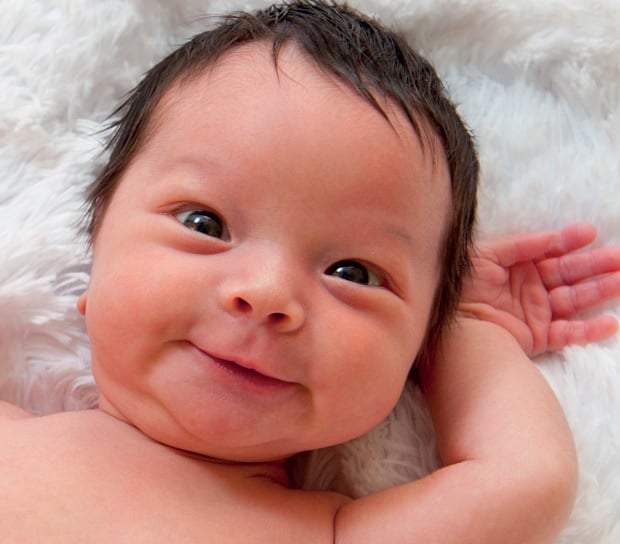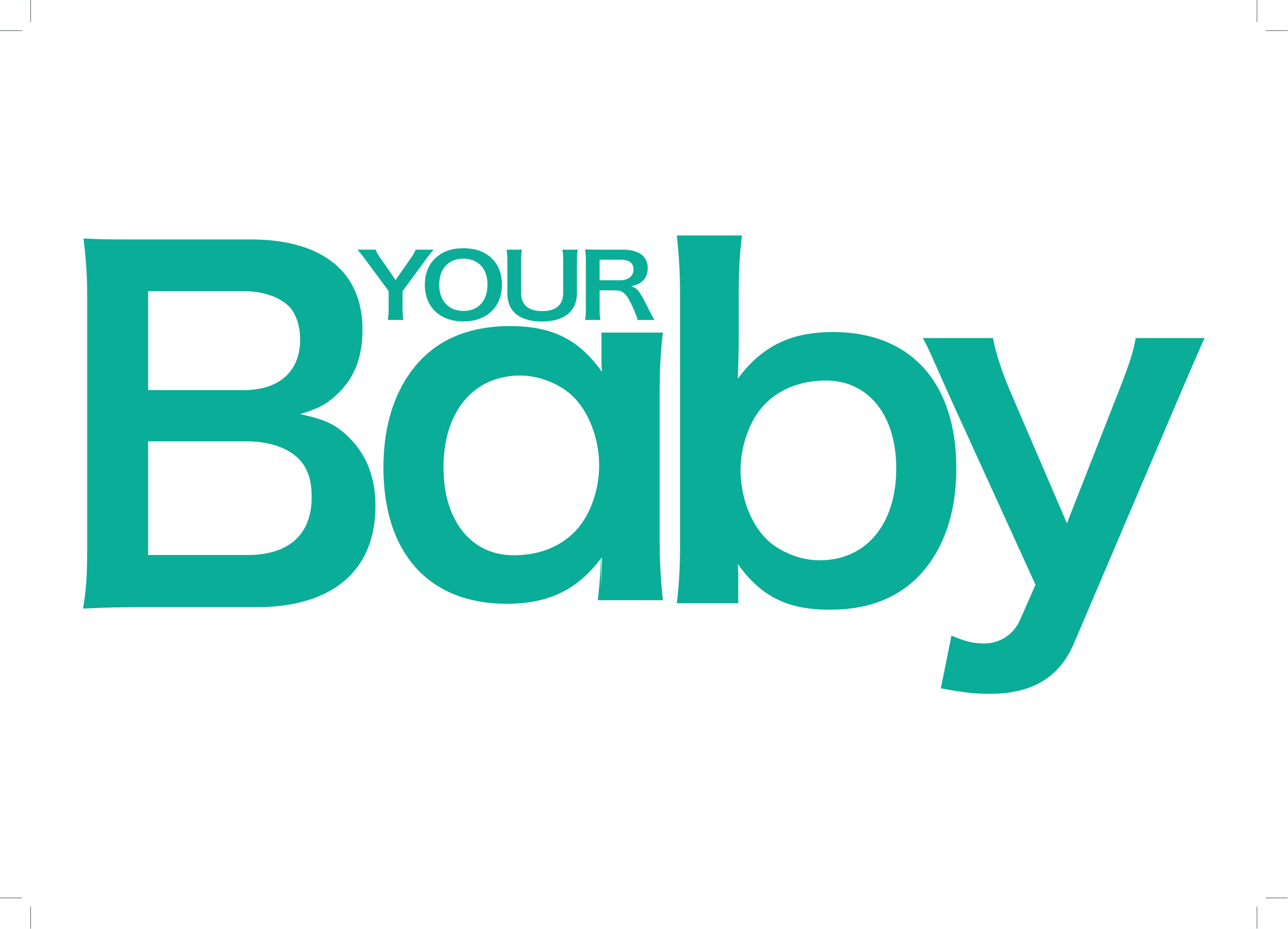
Just because babies can’t talk doesn’t mean they don’t have lots to say! Your baby started communicating with you even before she was born and continues to do so now using her body and cries. You can easily decode these early messages.
Yawning
Newborns do this a lot but they’re not bored or tired – yawning is actually an autonomic action. You may also notice your baby sneezing quite a bit. She does this involuntarily too – not necessarily because she’s getting sick.
Sucking on her fingers
If it’s not around feeding time, young babies suck on their fingers or fists as a way to self-soothe, an important skill needed for sleep. Additionally, says occupational therapist and co-author of the Sense series of books, Meg Faure, your baby does this as an exploration of the haptic sense – starting to recognise objects through touch.
Crying
Babies don’t cry to be naughty. Crying is an important communication tool for your little one and you’ll soon learn to interpret one of the seven types of cries that are generally recognised: pain, discomfort, hunger, loneliness, overstimulation, boredom or frustration.
- Also read: 5 tips for calming your crying baby
Smiling
Smiling is unique to humans and comes naturally when babies recognise a familiar face. Around 6 weeks your baby is starting to learn to experience emotion, and a smile on her face means that she’s happy. Smiling also brings a double reward when it’s returned as smiling is a baby’s first lesson in socialising.
Pulling a tongue
“The tongue thrust is a primitive reflex that goes away around four to six months,” says Meg. Babies who are fed solids early may also exhibit this reflex – they’re doing this because of the new experience solids brings. Toddlers usually stick their tongues out when they are engrossed in a certain activity or play.
- Also read: 10 crying soothers that work
Kicking her legs
Babies kick their blankets off when they’re too hot. Unfortunately babies can’t pull their blankets back up again – this is when crying comes in useful.
Babies also kick for the fun of kicking, especially in the bath. She’s saying, “This is fun; I want to do it some more!” and it’s good exercise, even though she splashes everything in sight too.
Older babies enjoy kicking against the resistance of a willing lap. This teaches them to use their legs and to stand. Don’t worry, your baby won’t get bandy-legged from doing this. It also helps to strengthen her hips, knees and ankles. When she’s tired, your baby will simply sit down again.
If your baby is rapidly kicking her legs though, she’s telling you she’s overstimulated and needs you to calm her environment down for her – take her toys away, put any music or TV off and dim the lights. Meg calls this the active alert state.
Scrunching her knees
Parents often interpret a baby scrunching her knees up toward her chest as tummy cramps. But when babies cry, they cry with their whole body, so it’s important to interpret the cry and not the action. Babies can comfortably pull their knees up to their chests back into the foetal position six months after birth.
Clenched fists
Your baby is not angry when she clenches her fists – it’s simply another reflex that she’s born with. This reflex is said to be a remnant of our ancestry when babies clung to their mother’s fur – evolution in action. The reflex should disappear in the first few months, so if it doesn’t be sure to get it checked out.
- Also read: Baby tantrums
Arching her back
Younger babies tell you they want to be left alone when they stiffen in your arms – especially if you hold them for too long. When older babies arch their backs, it’s a sign of utter frustration. Your baby is showing you that she does not want to do what you are trying to make her do, especially when it comes to eating. This usually happens towards the end of the first year.
Grabbing her ears
Very young babies who still have a strong grasping reflex can randomly grab their ears and pull them. Meg says that this is another signal of overstimulation, and that by doing this your baby is trying to self-regulate. Older babies who are ill and miserable may pull on sore ears, showing mom where it’s hurting.
Rubbing her eyes
Just as you do, your baby rubs her eyes when she’s tired. This gives the little glands just above the eyes the chance to lubricate the surface of the eye. If eye-rubbing is caused by dirt, a natural bactericide in tears helps to prevent an infection. Tears, which are often caused by eye-rubbing, also contain the body’s excess of stress chemicals so its nature’s way of helping to calm your baby – especially when you respond with your comforting arms.
Banging her head
Movement and rocking is an essential part of comforting that mothers do naturally. Providing that a baby’s needs are met, she is programmed to self-soothe by sucking. But when a baby’s needs are not met, she may become insecure and resort to rocking herself. A troubled baby may lead to head banging in toddlers – body language that should not be taken lightly and should be seen by a paed.
Are there any strange or ususual things your baby is doing? Tell us by commenting below or emailing chatback@parent.com.
Read more:
- Why does my baby cry when she drinks formula?
- WATCH: The stepping reflex in newborns
- The spinal galant reflex
Sign up to our weekly newsletter to receive Parent24 stories directly to your inbox.




 Publications
Publications
 Partners
Partners










